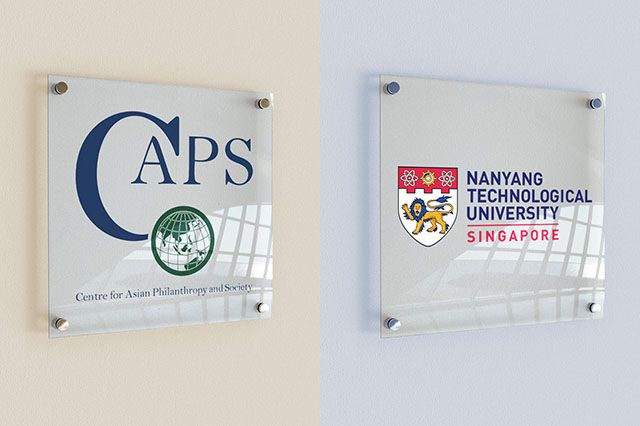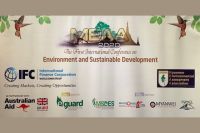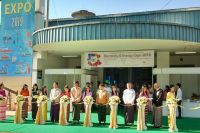MCRB Partners in Singapore, Hong Kong, Publish Reports on Creating Shared Value and Social Enterprise

MCRB, together with one of its Research Fellows, Simone Anzboeck, recently collaborated with Visiting Associate Professor Zhao Meng of Nanyang Centre for Emerging Markets (NCEM) at Nanyang Business School of Singapore on a research project how pioneer companies in eight Asian countries are working to ‘create shared value’ and build the capabilities of their staff to do so. The findings have been published by NCEM in a report ‘Capabilities for Creating Shared Value: Optimising Social-Business Balance in South and Southeast Asia’.
The research involved interviews with 42 organisation in ASEAN and South Asia, including nine in Myanmar. These were organisations that were either defined by NCEM as seeking to achieve ‘shared value optimisation’ and were either (1) companies practicing ‘strategic CSR’; (2) ‘triple bottom line’ businesses that embed social value into the business model or (3) social enterprises that prioritise a social goal and pursue a business model to achieve it (see Part 1, Understanding the CSV Category).
In 2016, MCRB together with the Responsible Investment Working Group of the AustCham Myanmar, published a Position Paper on ‘Incentivising Shared Value’ by companies in Myanmar, and presented this to the Myanmar Investment Commission and the Directorate for Investment and Companies Administration (DICA).
MCRB’S Hong Kong-based partner, the Centre for Asian Philanthropy and Society (CAPS), whose Executive Director Ruth Shapiro presented at MCRB’s October responsible business seminar on governance of corporate philanthropy, recently published a report on social enterprises called ’Business For Good: Maximising the value of social enterprises in Asia’. This surveyed 584 social enterprises from 6 economies: Hong Kong, Indonesia, Japan, Republic of Korea, Pakistan and Thailand, and profiled China and India, and interviewed 140 social enterprise founders, incubators, accelerators, investors and government officials in depth. It identifies gaps and quantify needs in funding, mentorship, talent and government support. It also highlights how enablers—including incubators, accelerators, universities—can continue to support social enterprises. CAPS suggest ways for social entrepreneurs and investors to align expectations in the hope of increasing deal flow and investment into the sector.
In Myanmar, there is an ongoing debate around how government can promote inclusive businesses and recognise and incentivise social enterprise and impact investment, including through the DICA Steering Group for Inclusive Business, supported by Dana Facility (MCRB is a member of the Steering Group). Chapter 5 of the CAPS report identifies how governments can better support the social enterprise ecosystem, which is an ongoing debate in Myanmar. When CAPS asked which was most important for SE startups, 43% said government, 36 % said private sector and 21% said social sector. The government support which was wanted most included funding for start-ups or facilitating access to finance; preferential procurement; improved ease of doing business; a lower tax burden for start-ups; and championing change in consumer behavior including recognition.
However legal recognition was identified as having mixed benefits, with CAPS reporting that even while acknowledging that targeted tax breaks could be beneficial, interviewees across all six economies feared extra reporting requirements, bureaucratic red tape and restricted registration conditions. Social enterprises (SE) in Korea, the only country to offer legal recognition for SEs, showed least support for it and many Korean SE are foregoing legal registration as SE, possibly because the requirements are considered too demanding. Since the introduction of the certification system in 2007, only 2308 enterprises have registered as SE. Ambivalence was also strong in Thailand about the new SE Law, with concerns expressed about potential fiscal obligations from registering as an SE. The survey’s findings on tax incentives and the importance of improving the ease of doing business for all SMEs and startups also have useful lessons for Myanmar as it develops policy in this area.
MCRB’s partnership with CAPS involves research for the Myanmar chapter of the 2020 Doing Good Index which will be published in the next few months and examines the enabling environment for philanthropy and private social investment across Asian economies in four areas – tax and fiscal policy, regulatory regimes, socio-cultural ecosystem, and government procurement.
 English
English မြန်မာ
မြန်မာ မြန်မာ (unicode)
မြန်မာ (unicode)










